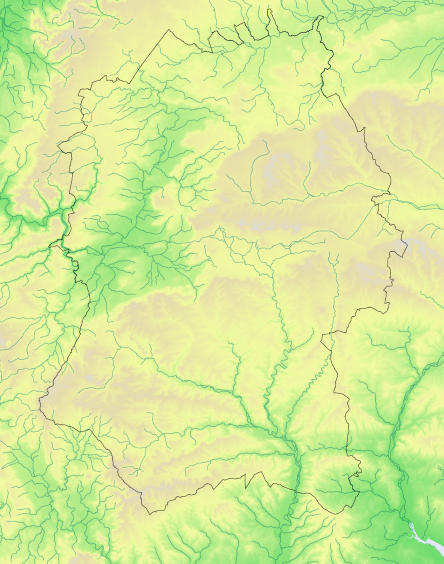Wood Warbler Phylloscopus sibilatrix
Summer abundance change
Local summer visitor, decreasing, breeds Europe, winters Africa
Atlas species lists
- Breeding distribution 1995–2000
- Summer abundance 1995–2000
- Winter distribution 1995–2000
- Winter abundance 1995–2000
- Breeding distribution 2007–2012
- Summer abundance 2007–2012
- Winter distribution 2007–2012
- Winter abundance 2007–2012
- Breeding distribution change
- Summer abundance change
- Winter distribution change
- Winter abundance change
More Wood Warbler maps
- Breeding distribution 1995–2000
- Summer abundance 1995–2000
- Winter distribution 1995–2000
- Winter abundance 1995–2000
- Breeding distribution 2007–2012
- Summer abundance 2007–2012
- Winter distribution 2007–2012
- Winter abundance 2007–2012
- Breeding distribution change
- Summer abundance change
- Winter distribution change
- Winter abundance change
Map explanation
This map shows where changes occurred in the relative abundance of the species in Wiltshire between 1995-2000 and 2007-2012, as revealed by the fieldwork for Birds of Wiltshire (Wiltshire Ornithological Society 2007) and the shared fieldwork for Bird Atlas 2007-2011 (BTO 2013) and for Wiltshire Tetrad Atlas 2007-2012.
Key
Relative to average
Nos tetrads

More abundant
26
3%

Equally abundant
0
0%

Less abundant
0
0%

Not surveyed in both periods
Wood Warblers breed throughout much of Eurasia, from Ireland and France to Mongolia, and winter in equatorial Africa.
In Great Britain they are mainly found in upland oak woods in Devon, Wales and western Scotland, with local concentrations also found in suitable lowland wooded areas such as the New Forest. Bird Atlas 2007-2011 recorded a 37% contraction in the breeding season distribution of the species in Great Britain since the 1968-72 Breeding Atlas and a 65% in numbers between 1995 and 2010 as revealed by the annual Breeding Bird Survey.
The first record of a Wood Warbler in Wiltshire dates from 1790 and there were scattered reports of them throughout the 19th century but it was not until the first half of the 20th Century that they started being recorded as “not uncommon” in suitable wooded areas. Their distribution in the county remained roughly the same until the end of the century though actual numbers declined. Birds of Wiltsire recorded them present in 49 tetrads, with breeding confirmed or probable in 20. WTA2 recorded them in 41 tetrads with breeding confirmed or probable in only seven.
References
The following references are used throughout these species’ accounts, in the abbreviated form given in quotation marks:
“1968-72 Breeding Atlas” – Sharrack, J.T.R. 1976: The Atlas of Breeding Birds in Britain and Ireland. T. & A. Poyser
“1981-84 Winter Atlas” – Lack, P.C. 1986: The Atlas of Wintering Birds in Britain and Ireland. T. & A. Poyser
“1988-91 Breeding Atlas” – Gibbons, D.W., Reid, J.B. & Chapman, R.A. 1993: The New Atlas of Breeding Birds in Britain and Ireland 1988-91. T. & A. Poyser
“Birds of Wiltshire” – Ferguson-Lees, I.J. et al. 2007: Birds of Wiltshire, published by the tetrad atlas group of the Wiltshire Ornithological Society after mapping fieldwork 1995-2000. Wiltshire Ornithological Society.
“Bird Atlas 2007-2011”-– Balmer, D.E., Gillings, S., Caffrey, B.J., Swann, R.L., Downie, I.S. and Fuller, R.J. 2013: The Breeding and Wintering Birds of Britain and Ireland. BTO Books.
“WTA2” – ("Wiltshire Tetrad Atlas 2 ") the present electronic publication, bringing together the Wiltshire data from “Birds of Wiltshire” and “Bird Atlas 2007-11”, together with data from further fieldwork carried out in 2011 and 2012.
"Hobby" - the annual bird report of the Wiltshire Ornithological Society.

